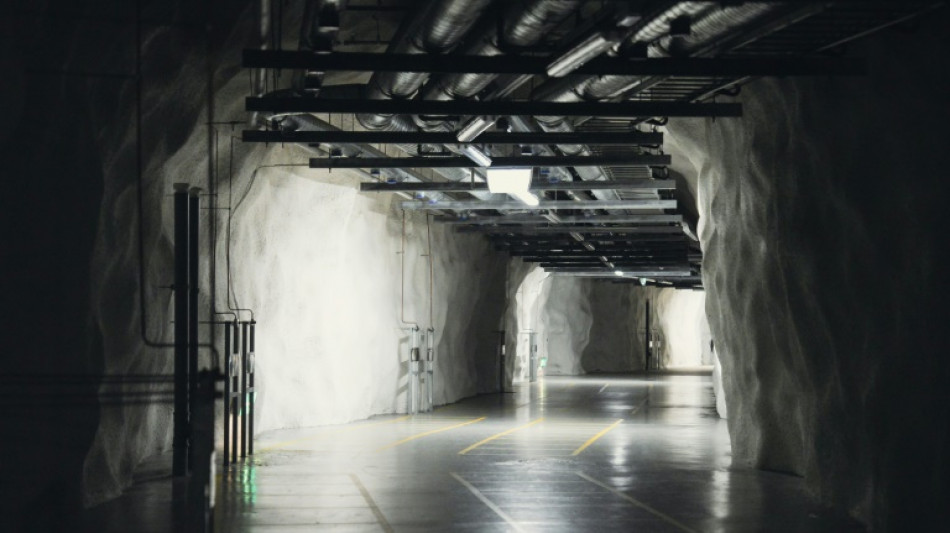
-
 Bayer proposes class settlement for weedkiller cancer claims
Bayer proposes class settlement for weedkiller cancer claims
-
Gauff, Rybakina cruise into Dubai last 16

-
 Greenland entrepreneur gambles on leafy greens
Greenland entrepreneur gambles on leafy greens
-
Father of US school shooter goes on trial on murder charges
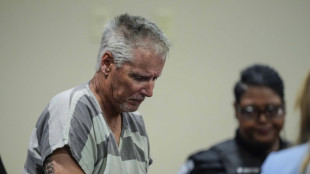
-
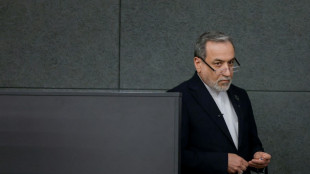 Iran, US agree on 'guiding principles' for deal at Geneva talks: Iran FM
Iran, US agree on 'guiding principles' for deal at Geneva talks: Iran FM
-
Warner Bros. gives Paramount one week to outbid Netflix

-
 Russians, Belarusians allowed to compete under own flags at 2026 Paralympics: IPC tells AFP
Russians, Belarusians allowed to compete under own flags at 2026 Paralympics: IPC tells AFP
-
Ukrainian wife battles blackouts to keep terminally ill husband alive
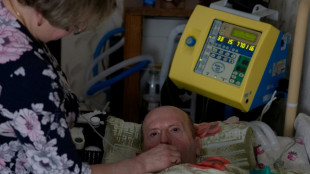
-
 Pollock handed first England start for Ireland visit
Pollock handed first England start for Ireland visit
-
Oil prices fall back as 'hopeful' Tehran responds to Trump

-
 Arteta welcomes Madueke and Saka's competition for places
Arteta welcomes Madueke and Saka's competition for places
-
France and India hail growing ties as Modi hosts Macron

-
 Warner Bros. says reopening talks with Paramount on its buyout offer
Warner Bros. says reopening talks with Paramount on its buyout offer
-
Slalom showdown Shiffrin's last chance for Milan-Cortina medal

-
 Protesters march in Kosovo, as ex-president's war crimes trial nears end
Protesters march in Kosovo, as ex-president's war crimes trial nears end
-
No pressure on India opener Abhishek after two ducks, says coach

-
 Sakamoto eyes figure skating gold in Olympic farewell
Sakamoto eyes figure skating gold in Olympic farewell
-
Pereira 'trusts' Forest owner Marinakis despite three sackings this season

-
 AI 'arms race' risks human extinction, warns top computing expert
AI 'arms race' risks human extinction, warns top computing expert
-
Israeli bobsleigher dismisses Olympics 'diatribe' by Swiss TV commentator

-
 Supreme leader says Iran can sink US warship as Geneva talks conclude
Supreme leader says Iran can sink US warship as Geneva talks conclude
-
Australia, Ireland out of T20 World Cup as Zimbabwe qualify after washout
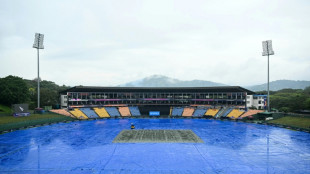
-
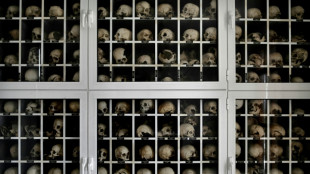 Greece experts to examine Nazi atrocity photos find
Greece experts to examine Nazi atrocity photos find
-
Los Angeles mayor calls for 2028 Olympics chairman to step down over Epstein files

-
 Evenepoel takes UAE Tour lead with time-trial win
Evenepoel takes UAE Tour lead with time-trial win
-
Oil prices rise as Trump ramps up Iran threats

-
 EU investigates Shein over sale of childlike sex dolls
EU investigates Shein over sale of childlike sex dolls
-
Bangladesh's new PM, political heir Tarique Rahman

-
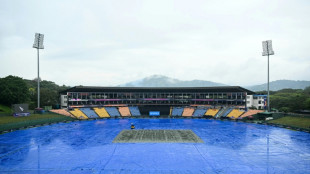 Rain threatens to knock Australia out of T20 World Cup
Rain threatens to knock Australia out of T20 World Cup
-
US civil rights leader Jesse Jackson dies at 84: family

-
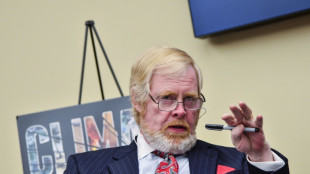 Trump's new envoy arrives in South Africa with relations frayed
Trump's new envoy arrives in South Africa with relations frayed
-
Jesse Jackson: civil rights lion sought 'common ground'

-
 Iran, United States hold new talks in Geneva
Iran, United States hold new talks in Geneva
-
Tariq confident Pakistan can bounce back after India drubbing

-
 Being back in the USA 'feels amazing', says Vonn
Being back in the USA 'feels amazing', says Vonn
-
New Zealand cruise into Super Eights at T20 World Cup

-
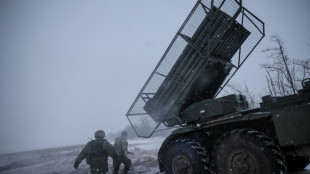 Moscow, Kyiv meet for US-brokered talks after fresh attacks
Moscow, Kyiv meet for US-brokered talks after fresh attacks
-
Exhilarating Italy aim to sign off with giant-killing at T20 World Cup

-
 Samra hits 110 for Canada against New Zealand at T20 World Cup
Samra hits 110 for Canada against New Zealand at T20 World Cup
-
'Made in Europe' or 'Made with Europe'? Buy European push splits bloc
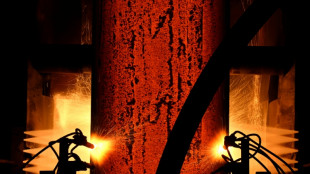
-
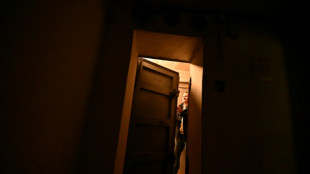 Slovakia revamps bunkers with Ukraine war uncomfortably close
Slovakia revamps bunkers with Ukraine war uncomfortably close
-
Sydney man jailed for mailing reptiles in popcorn bags

-
 'Like a Virgin' songwriter Billy Steinberg dies at 75
'Like a Virgin' songwriter Billy Steinberg dies at 75
-
Who fills Sexton vacuum? Irish fly-half debate no closer to resolution

-
 Japan hails 'new chapter' with first Olympic pairs skating gold
Japan hails 'new chapter' with first Olympic pairs skating gold
-
Russian prosthetics workshops fill up with wounded soldiers
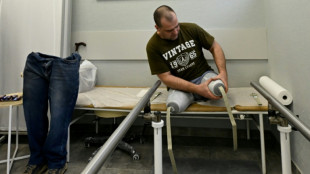
-
 'Not just props that eat': Extras seek recognition at their own 'Oscars'
'Not just props that eat': Extras seek recognition at their own 'Oscars'
-
Bangladesh PM-to-be Tarique Rahman and lawmakers sworn into parliament

-
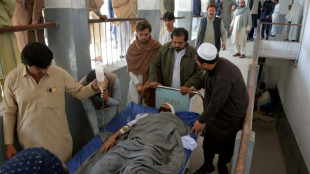 At least 14 killed in spate of attacks in northwest Pakistan
At least 14 killed in spate of attacks in northwest Pakistan
-
Peru Congress to debate impeachment of interim president


Finland's colossal bomb shelters a model for jittery Europe
Swimming pools, playgrounds and amusement parks: Finland's underground facilities, which can double as bomb shelters, have emerged as an inspiring approach as Europe ramps up preparedness after Russia's invasion of Ukraine.
Finland shares a 1,340-kilometre (830-mile) border with Russia. Its network of civil defence shelters is an integral part of its preparedness strategy, which harks back to just before World War II.
Blasted into Helsinki's granodiorite bedrock dozens of metres underground, people of all ages swim and splash in the pools or relax in saunas in the cavernous Itakeskus swimming hall.
The complex is one of Finland's 50,500 civil defence shelters which have space for around 4.8 million of its 5.6 million population.
Intended to accommodate up to 3,800 people, the pools can be emptied of water and turned into a bombproof shelter within 72 hours.
"This is the world's biggest civil defence shelter facilitating a swimming hall," Teemu Raatikainen, who has been the head of maintenance for almost 30 years, proudly explained as he gave AFP a tour.
Finland's security strategy based on long-term investments in both the military and preparedness -- including civil defence shelters -- has attracted international interest after Russia's invasion of Ukraine in 2022 and the deteriorated security situation across Europe.
"We always have this multi-use -- peacetime use and wartime use -- of our shelters," Jarkko Hayrinen, a senior rescue officer at Finland's interior ministry explained, as he showed AFP another one of Helsinki's large bomb shelters.
- Blast-proof tunnels -
With space for 6,000 people, the Merihaka shelter in central Helsinki houses an underground playground, several ball courts and a gym.
"The shelters are very well maintained because people are using them in normal times," Hayrinen said.
The Finnish "cultural mindset" of involving all sectors of society in security has become something of a "trademark" for Finland after it joined the NATO military alliance in 2023, said Matti Pesu, a senior researcher at the Finnish Institute of International Affairs.
"And the civil defence shelters are a real tangible symbol of how the authorities are preparing to protect citizens in emergency situations," he added.
High-level guests such as Ukrainian President Volodymyr Zelensky and Denmark's King Frederik X and Queen Mary have recently been given guided tours through the zigzagging blast-proof tunnels of the Merihaka shelter.
- Long tradition -
"The first act on building defence shelters was adopted already in 1939, two weeks before the Winter War started," Hayrinen said, referring to the Soviet Union's invasion of Finland which lasted more than a 100 days.
"Finland was not prepared for defending civilians during wartime and it was a hard lesson for us," he added.
The Nordic country now has bomb shelters to protect almost all its citizens, with Helsinki providing space for 900,000 persons -- enough to host all the capital's residents and thousands more.
Designed to withstand explosions, building collapses, radiation and toxic substances, the largest public shelters in Finland have primarily been situated in populated areas.
Buildings or housing complexes with a floor area exceeding 1,200 square metres are required by law to have a bomb shelter.
Other countries with a similar wide access to bunkers are Switzerland, Sweden, Norway and Israel.
"All of these countries are united by a tradition of neutrality or a strategically difficult position," Pesu noted.
Finland, where military service is mandatory for all men and voluntary for women, can quickly mobilise some 280,000 soldiers and the total military reserve comprises some 900,000 people.
On April 1, the country announced it will increase national defence spending to at least three percent of GDP by 2029 in response to the security threat posed by Russia.
L.Davis--AMWN

